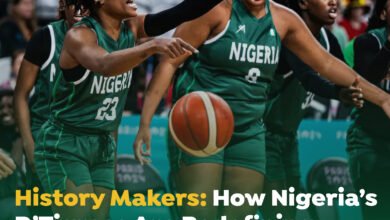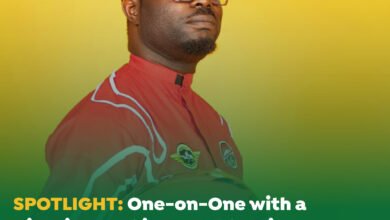
Nigerian football fans were left disappointed yet again as Rivers United’s CAF Confederation Cup run ended in the quarter-finals. This marks the second consecutive year the club has fallen short at this stage, mirroring the struggles of Nigerian teams on the continental scene for the past two decades.
This decline comes despite a wealth of individual talent. From legends like Nwankwo Kanu and Jay-Jay Okocha to current stars like Victor Osimhen, Nigeria boasts a rich footballing heritage.
However, the Nigerian Professional Football League (NPFL) has failed to translate this talent into consistent success at the continental level.
Despite being Africa’s top football exporter, according to besoccer.com, Nigerian clubs haven’t replicated this success at home.
Recent comments by entrepreneur Tony Elemelu offer a potential turning point. Elemelu sparked an exciting conversation when he replied to @LawyerDayo’s tweet on X suggesting that large Nigerian companies consider buying league clubs as a means of expanding their Corporate Social Responsibility (CSR).
Responding, the 61-year-old billionaire says the idea was excellent before adding that the Minister of Sports, Senator John Enoh, had approached him and that they are evaluating the viability and prospect of the project.
Beyond the surface
Financial limitations are a major hurdle, as analyst Fisayo Diaro points out. Leagues like the English Premier League demonstrate the impact of significant investment. The weakening Naira has undoubtedly hampered the NPFL’s ability to attract sponsors and retain talent.
“You need money to put facilities in place; you need money to put human capital in place,” he added. “You need to pay people very well to be happy, to impact greatness from the very young stage of football.”
“Without sponsors, the league start struggles…late start…poor remuneration…poor official indemnities, etc.,” Paul Bassey, Akwa United Chairman, disclosed in an interview. “the league trudges to an end, most times too late for adequate preparations for the continent.” A league without a sponsor, he contended, is a poor league, and players are just too eager to run to greener pastures, leaving clubs depleted at the end of every season with little or no time to recruit suitable replacements.
A walk through the past
In 2003, Enyimba became the first Nigerian football club to lift the prestigious African Champions League trophy. That triumph against the Ismaily of Egypt cemented Nigeria’s grand entrance into the continent club football. As the defending champion, the Nigerian contingent again pummeled the Tunisian powerhouse, Etoile Du Sahel, in the 2004 showdown. Those two crucial victories, in addition to other silverware, cemented the club as one of the greatest and biggest in the country.
The other time a Nigerian team played in the CAF Champions League final was the Heartland of Owerri in 2008 against the TP Mazembe of Congo DR. The Naze millionaires were defeated by their Congolese counterparts. But that was not all due to the exploits of Nigerian clubs in continental football competitions. In 1996, Shooting Stars of Ibadan was defeated by Zamalek of Egypt in an entertaining and epic final. The Iwuanyanwu Nationale also lost to ES Setif in the 1988 edition of the tournament. In their first encounter in 1984, the Zamalek also trounced the Shooting Stars of Ibadan. In 1975, the Rangers of Enugu became the first Nigerian club to play in the African football club’s prestigious gong. The team lost to their Guinea Conakry team, Hafia FC
A Call to Action
With the covert and overt interest of the likes of Elemelu, critical stakeholders in the nation’s league may heave a sigh of relief. And with such financial heft, the 20-year-old jinx might finally be heading for the rock.
Football stakeholders, including the NPFL, clubs, and the Ministry of Sports, must capitalise on this momentum.
Streamlining player development programs, adopting strong governance models, and investing in infrastructure are crucial steps alongside financial injections.
Nigerian football fans also have a role to play. Increased viewership and engagement create a more attractive product for sponsors.
With the 2024/25 CAF season on the horizon and Nigeria’s return to continental competition, now is the perfect time to embark on a rebuilding project that will see the nation reclaim its position as a dominant force in African club football.





